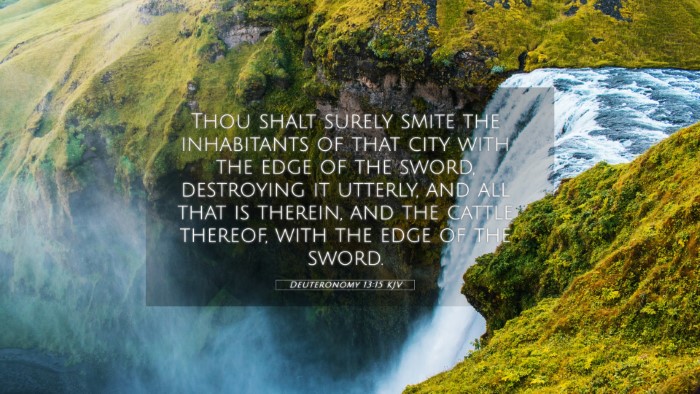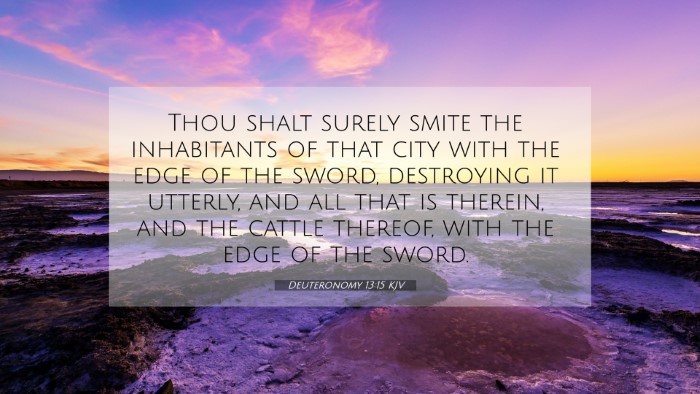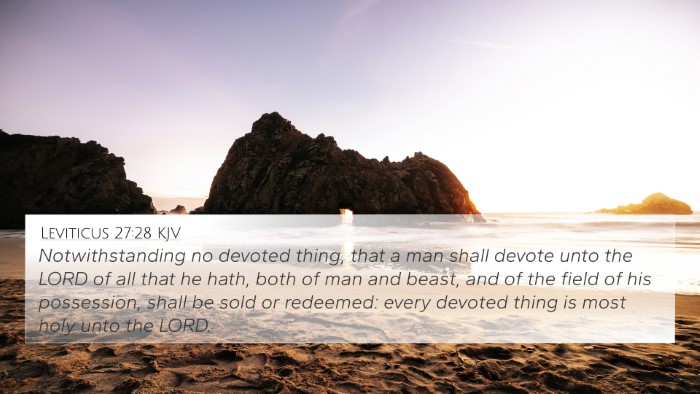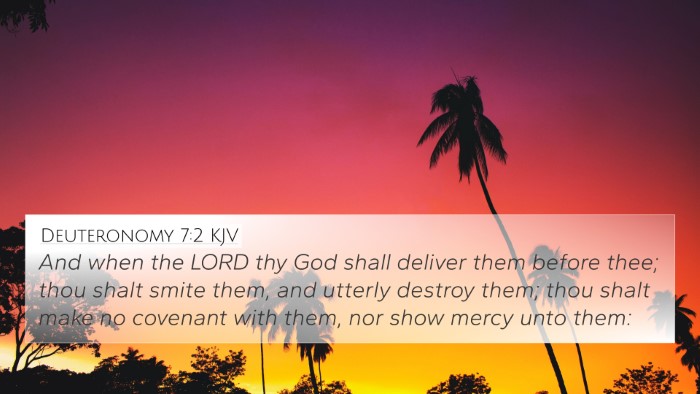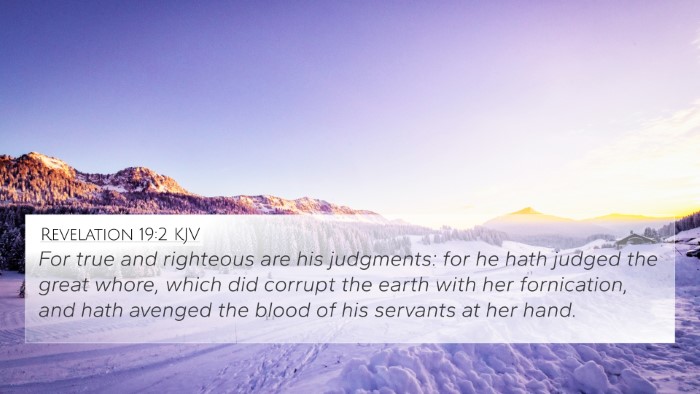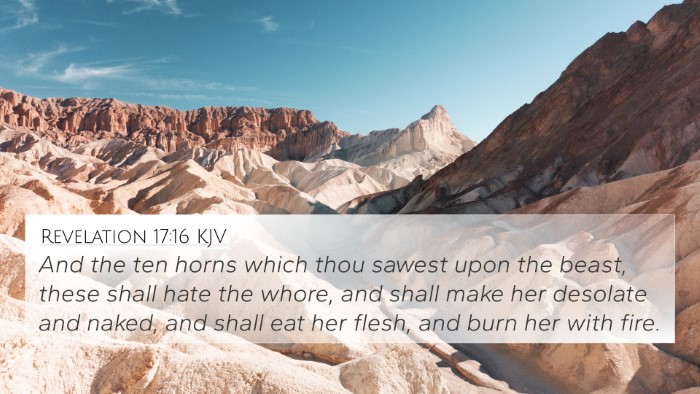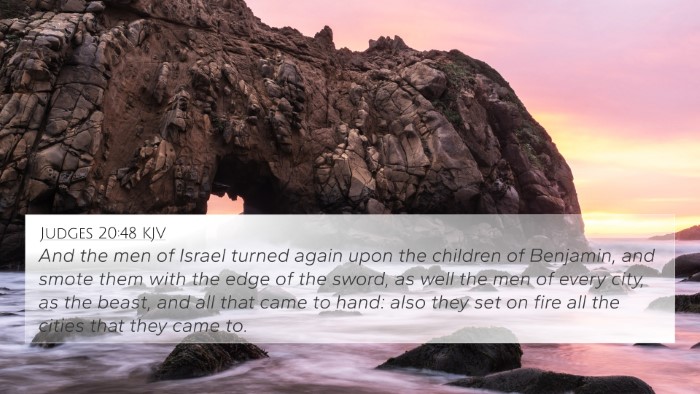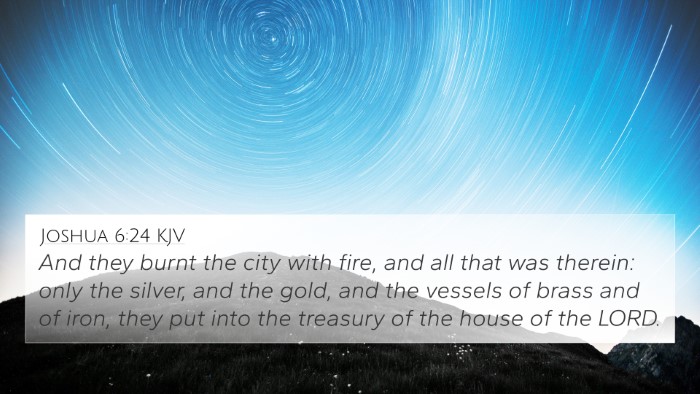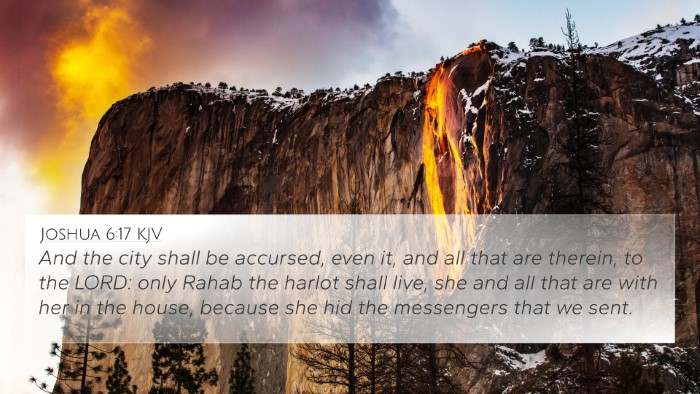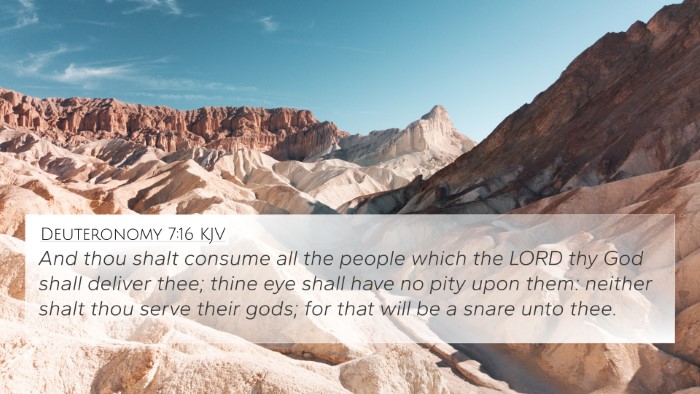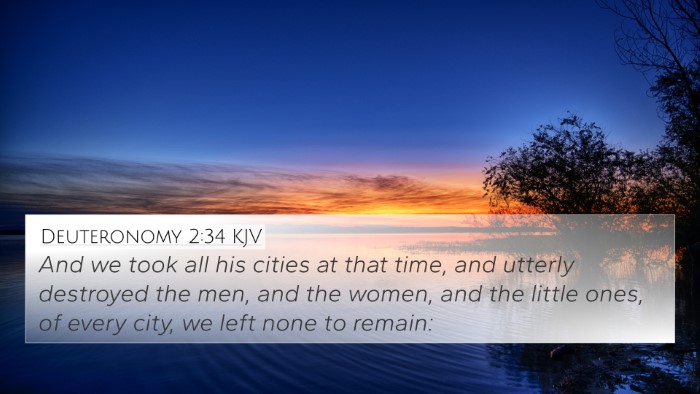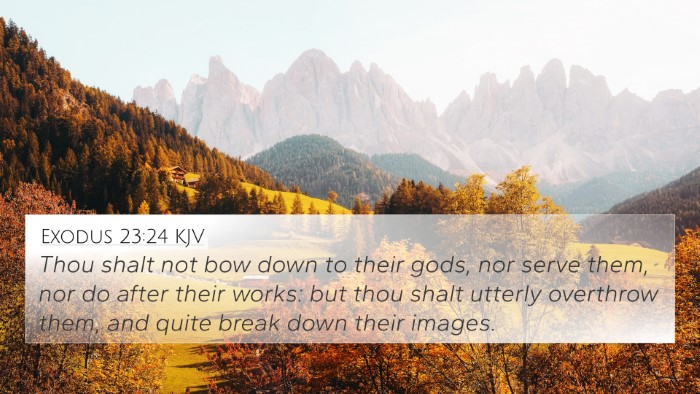Understanding Deuteronomy 13:15
The verse Deuteronomy 13:15, which states, "You shall surely strike the inhabitants of that city with the edge of the sword, utterly destroy the city and all that is in it," is a complex directive found in the Old Testament. This verse reflects God's commandments regarding idol worship and punishment for those enticing others to turn away from Him.
Summary of Deuteronomy 13:15
This command serves as a warning against idolatry and the seriousness of turning away from God. The context involves a hypothetical situation where a city leads Israel astray, and the divine directive is to eradicate such influences completely.
Commentary Insights
-
Matthew Henry Insights:
Henry stresses that this command illustrates God’s zealous jealousy over His people and His intolerance towards idolatry. He highlights the need for a serious response to any form of rebellion against God’s covenant.
-
Albert Barnes' Perspective:
Barnes emphasizes the drastic measures necessary to safeguard Israel from spiritual corruption. The punishment serves to deter future occurrences of idolatry and demonstrate the unity of God's people in rejecting false gods.
-
Adam Clarke’s Analysis:
Clarke provides a historical context, explaining how this command ingrains the importance of fidelity to God. He proposes that such measures are not merely punitive but intended to preserve the spiritual purity of the nation.
Thematic Connections
This verse connects deeply with themes of idolatry and covenant loyalty throughout the Bible. It draws parallels with both Old and New Testament scriptures.
Cross-References to Deuteronomy 13:15
- Exodus 22:20: "He who sacrifices to any god, other than to the Lord alone, shall be utterly destroyed."
- Joshua 1:18: "Whoever rebels against your command and does not heed your words in all that you command him shall be put to death."
- 2 Kings 23:20: "And he executed all the priests of the high places who were there, on the altars, and burned men’s bones on them."
- Psalms 31:6: "I have hated those who regard useless idols; but I trust in the Lord."
- 1 Corinthians 10:14: "Therefore, my beloved, flee from idolatry."
- Galatians 5:20: "Idolatry, sorcery, hatred, contention, jealousy, outbursts of wrath..."
- Revelation 21:8: "But the cowardly, unbelieving, abominable, murderers, sexually immoral, sorcerers, idolaters, and all liars shall have their part in the lake which burns with fire and brimstone..."
Conclusion
Deuteronomy 13:15 presents a significant command concerning the dangers of idolatry and the importance of remaining faithful to God. In the realm of Biblical interpretation, understanding the context and weight of these verses allows us to appreciate the seriousness of God's directives. The connections established through cross-referencing offer a richer understanding of the scriptures and their interrelated messages.
Useful Tools for Bible Cross-Referencing
- Bible Concordance: A valuable resource for locating specific verses and their themes.
- Bible Cross-Reference Guide: Helps in studying connections between verses effectively.
- How to Use Bible Cross-References: Guides on finding relationships within the text.
- Bible Reference Resources: Various tools available for deepening understanding through cross-referencing.
Inter-Biblical Dialogue
Through comparative Bible verse analysis, believers can gain insight into God's unchanging standards regarding worship and devotion. This calls for an emphasis on how the Old Testament principles are echoed in the New Testament teachings, reinforcing the necessity of unwavering loyalty to God.

